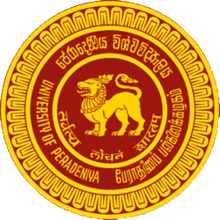

The Department of Psychology, the oldest in Sri Lanka offering a psychology degree in Sri Lanka, is focused on providing an undergraduate degree program on par with international standards. The graduate profile developed by the Department outlines the type of graduate that the Department endeavours to mold and the mechanism through which this will be achieved.
The Department of Psychology of the University of Peradeniya aspires to become a leader in undergraduate and postgraduate psychology education, making a significant contribution to the science and practice of psychology, producing professionals who can serve communities locally, nationally, and internationally.
The Department of Psychology of the University of Peradeniya is dedicated to achieving excellence in both undergraduate and postgraduate education by striving to foster competence, ethics, and commitment to the science of psychology in our graduates. The program is built on the principles of the scientific comprehension of human mental life, critical scholarship, service, inclusivity, and justice. The Department endeavors to inculcate professionalism in graduates and prepare them to serve in a variety of settings including health, education, industry, and public service with sensitivity to diversity. The Department encourages an ethos of collaboration and cooperation between students, staff, and community and strives to promote wellness and well- being.
A graduate of the Department of Psychology at the University of Peradeniya possesses a solid foundation in scientific principles of psychology and has honed their skills through critical exploration, demonstrating sensitivity to social and cultural contexts. Their goal is to promote the well-being and wellness of communities.

At the end of the Program students will be able to:
PLO1 Describe, examine, and critically evaluate theoretical approaches, key concepts, and methodologies in psychology.
PLO2 Gather, review, evaluate and construct alternate explanations for research-based knowledge in psychology.
PLO3 Critically evaluate knowledge and methodologies in psychology for their cultural and contextual appropriateness.
PLO4 Devise solutions for theoretical, methodological, and everyday practical problems through the application of knowledge and skills in psychology
PLO5 Employ learned skills to evaluate and analyze qualitative and quantitative data and present findings in a wide variety of forums.
PLO6 Communicate information, arguments, and analyses, in writing and or verbally in a way that will be understood by diverse audiences.
PLO7 Define, evaluate, and perform behaviors that are consistent with ethical standards in psychology while also exhibiting professional integrity and social responsibility.
PLO8 Identify and assess the impact of one’s cultural heritage and values on knowledge production and application and its impact on those who don’t share the same cultural attributes.
PLO9 Identify limits of knowledge and skills, and to manage further learning and training in psychology and / or outside the discipline.
PLO10 Demonstrate knowledge, skills and attitudes that are transferable to situations of employment, further study, or community engagement.
PLO 11 Practice basic skills and specific qualities of an effective mental health provider such as empathy, congruence, and unconditional positive regards
PLO 12 Demonstrate competence to use digital applications to investigate states of mind and disseminate new knowledge.
PLO 13 Lead the community and the industry in diverse contexts with competence and confidence.
| Home | ||
| Overview | ||
| +About us | +Graduate Profile | |
| Academic | ||
| +Undergraduate | +Postgraduate | |
| +International | +Awards & Medals | |
| +Scholarships | ||
| Staff | ||
| +Academic | +Non-academic | |
| Activities | ||
| +PIERS | +Orations | |
| +Seminars | +Societies |
|
Address Department of Psychology, Faculty of Arts, University of Peradeniya Peradeniya, 20400, Sri Lanka |
|
|
Telephone Head:+94 81 239 2816 Office:+94 81 239 2817 |
|
|
Email psychology@pdn.ac.lk |